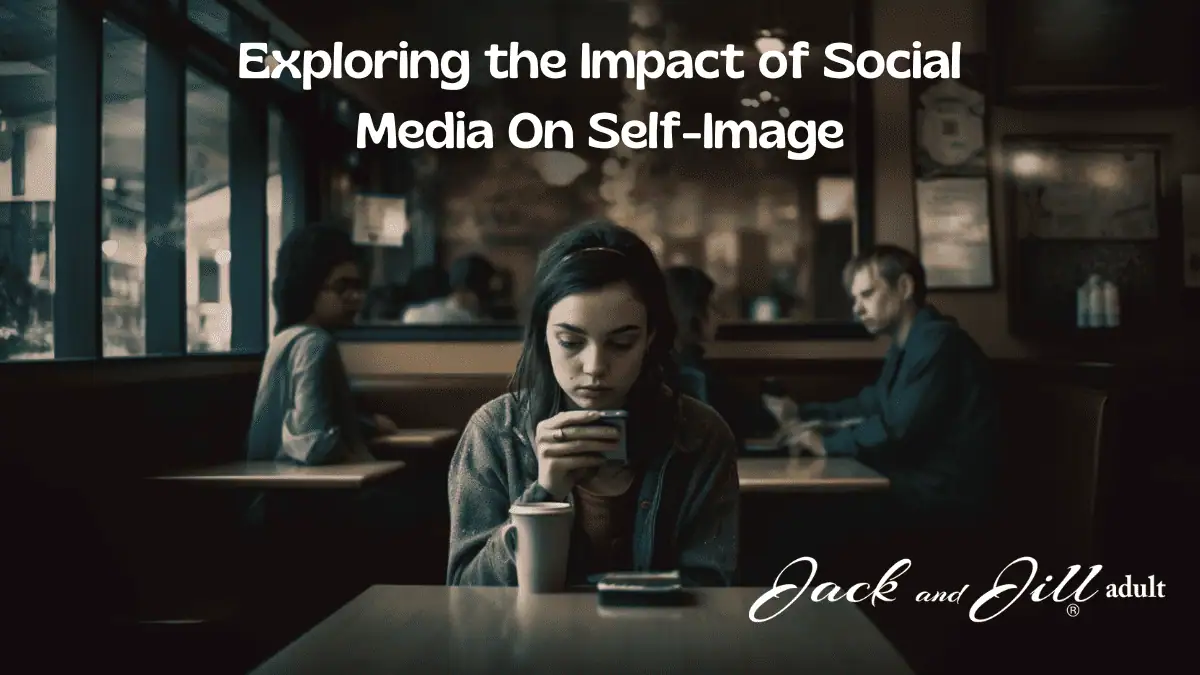
Exploring the Impact of Social Media on Self-Image
Are you feeling the impact of social media on self-image? Follow us as we unpack how digital platforms influence our self-perception and self-worth. Without embellishment, we directly examine the key effects of social media on self-image and equip readers with strategies to preserve a positive self-image amid an online culture focused on idealized portrayals.
Key Takeaways
- Social media platforms can negatively impact self-esteem, mental health, and body image due to idealized and curated content, which drives users to make harmful comparisons.
- Increased social media usage is associated with higher rates of anxiety, depression, and body dysmorphic disorder, particularly among teens and young adults, due to the pressure of attracting likes and facing cyberbullying.
- Building a positive self-image involves recognizing the curated nature of social media content, engaging in personal growth, curating social feeds with positive content, and investing in offline relationships and self-care practices.
The Power of Social Media on Self-Image
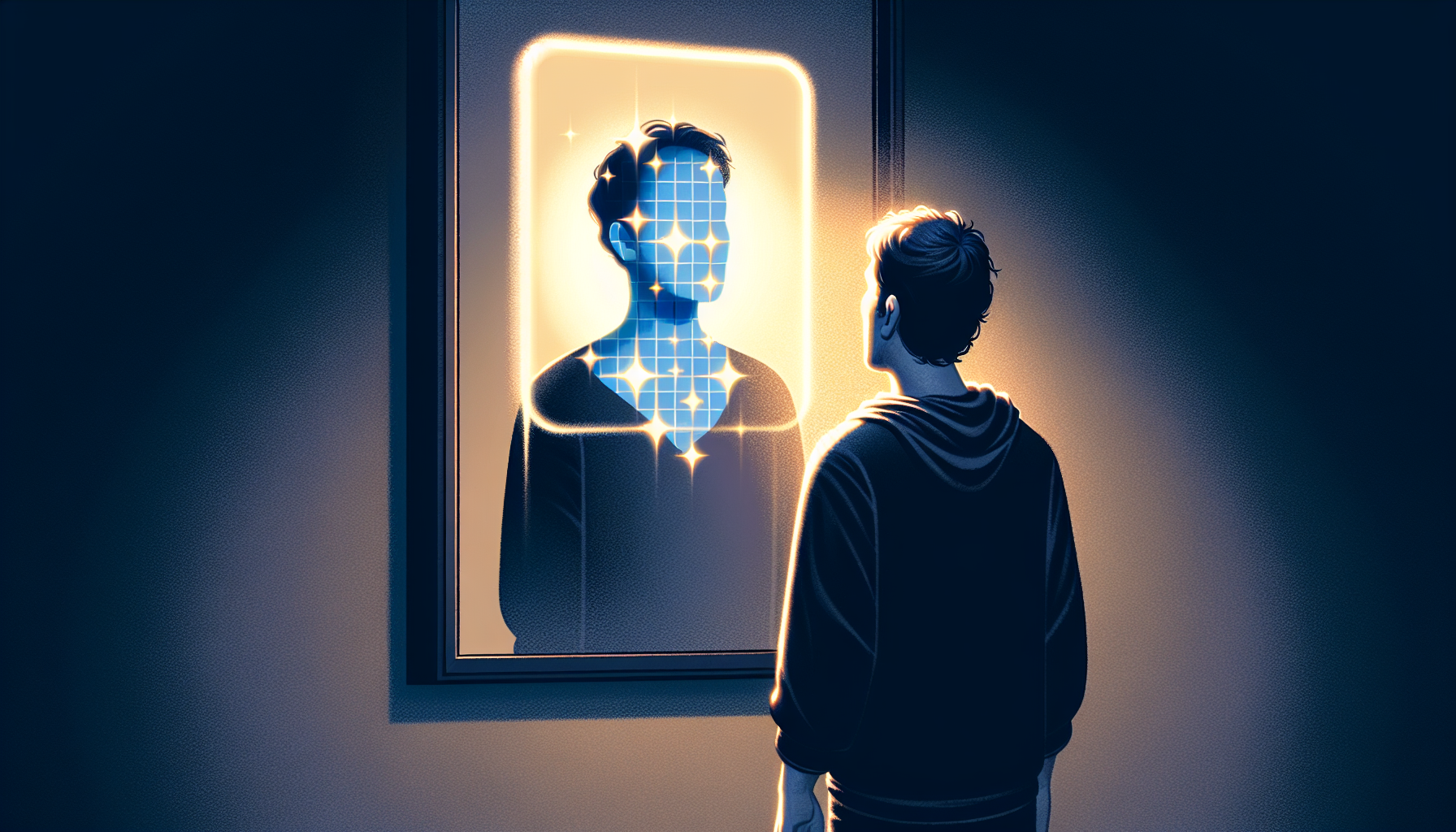
Social media platforms have a significant role in shaping our self-image. They serve as platforms where people showcase their achievements, perfect moments, and an idealized sense of self, often leaving out their lives ordinary and imperfect aspects. This has led social media users to compare themselves to the curated images they see online, resulting in:
- Decreased self-esteem
- Feelings of inadequacy
- Negative body image
- Increased anxiety and depression
- Contributing to body dysmorphic disorder
It is important to be aware of the potential negative effects of social media and to prioritize self-care and self-acceptance.
Social media has a pervasive and profound impact on self-image, and understanding its effects is crucial. These platforms can negatively impact self-esteem, leading to issues such as poor body image and self-doubt. In the subsequent subsections, we will explore how filters, photo editing, and the rise of influencers contribute to this phenomenon.
The role of filters and photo editing
Social media platforms have made it incredibly easy for users to alter their appearance using filters and photo editing applications. These social media apps allow people to present an enhanced version of themselves, perpetuating false beauty standards and exacerbating body image issues. This smoke screen of enhanced beauty creates a significant gap between reality and the images we see on our social media feeds.
A survey by the National Eating Disorders Association revealed that 42% of participants felt worse about their appearance after seeing filtered or manipulated photos on social media. Clearly, the widespread use of photo manipulation on social media platforms contributes significantly to the development of negative body image and self-esteem issues among users.
The rise of “influencers”
In the world of social media, influencers have emerged as prominent figures and trendsetters. They wield significant power to shape perceptions and buying habits through endorsement deals and sponsored content. However, the picture-perfect lives presented by influencers often hide the harsh realities behind the screen, showcasing only peak moments and accomplishments.
When followers are exposed to the highlight reels of influencers’ lives, they may feel that their own lives do not measure up, leading to feelings of inadequacy and low self-worth. Constant exposure to these unrealistic standards can foster social media addiction as users strive for the unattainable, thereby exacerbating the detrimental effects of social media on self-esteem.
Mental Health Implications of Social Media Use
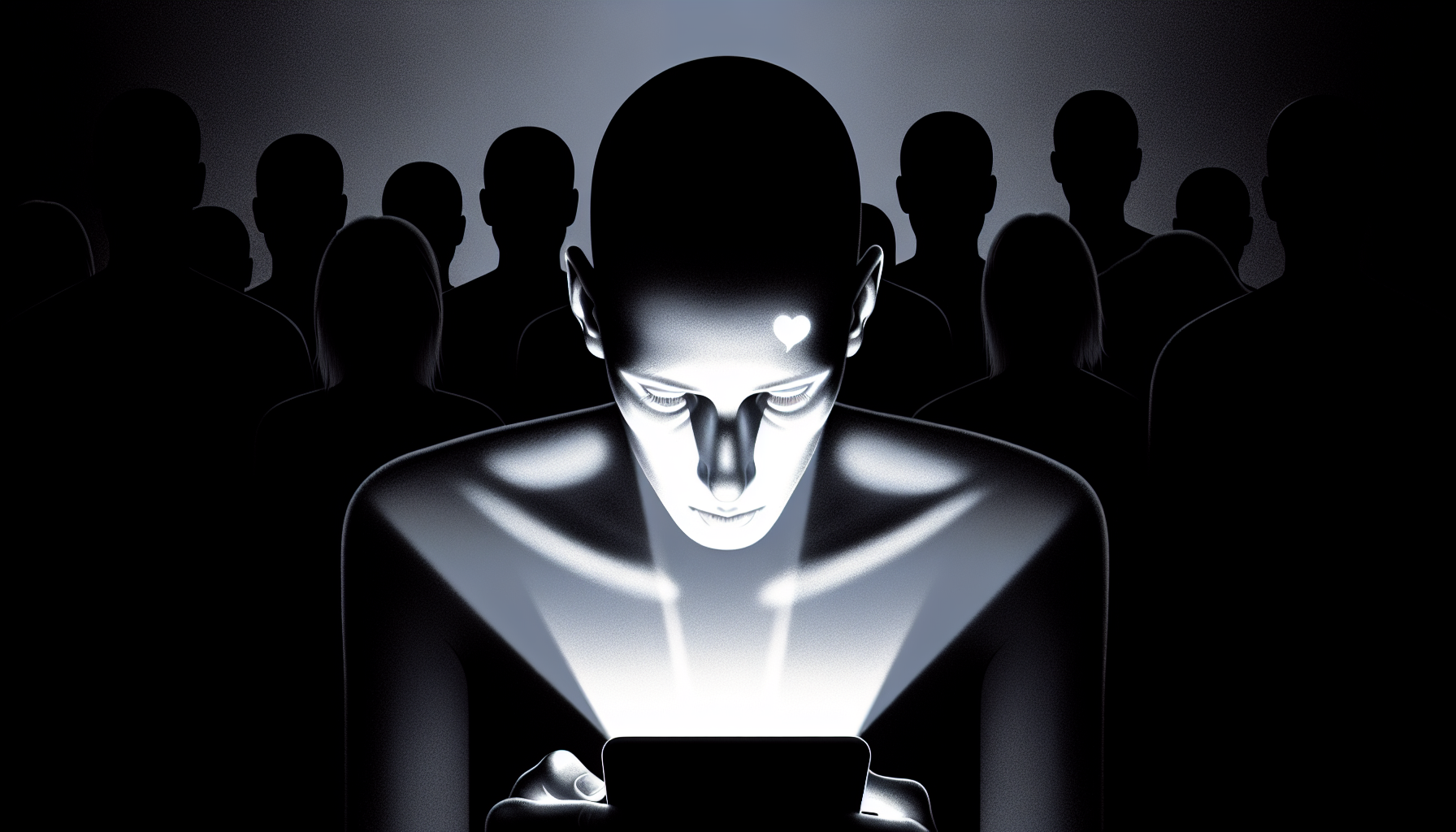
The effects of social media on self-esteem extend beyond the realm of self-perception. It has far-reaching implications for mental health as well. While social media can potentially provide positive effects, it can also lower an individual’s self-esteem and life satisfaction. Different platforms affect well-being in diverse ways. Facebook and Instagram have been associated with lower well-being, while Twitter has been linked to positive emotions and higher life satisfaction..
Interactions on social media can trigger a wide spectrum of emotions, ranging from excitement to anxiety, envy, and depression. These feelings can vary greatly from person to person. Moreover, social media use can interfere with relaxation and contribute to reduced sleep time by delaying bedtime. Higher rates of depression and anxiety have been reported among teenagers and young adults with increased smartphone and social media use, leading to less emotional satisfaction and feelings of social isolation. Nevertheless, restricting social media use to manageable timeframes can mitigate the negative impacts on self-esteem arising from overexposure to self-comparison.
Anxiety and depression
The ubiquitous nature of social media and its influence on our lives can lead to a host of mental health problems, especially among teens and young adults. Frequent use of social media can often result in individuals engaging in social comparison, seeking validation through receiving likes and comments on their posts. This behavior is commonly observed in many users across various social platforms. This can expose individuals, particularly young people, to cyberbullying, impacting their self-worth and confidence, which contributes to feelings of inadequacy, depression, anxiety, and loneliness.
A study revealed that Gen Z users who spend more than two hours daily on social media platforms are more likely to develop body image issues. This is due to the inundation of images of idealized beauty that instigate feelings of inadequacy and negatively affect their self-esteem and body image. Further, 43% of teens reported feeling pressured to post content that made them look good. In comparison, 37% felt compelled to post content that would receive many likes and comments, indicating the stress associated with maintaining an appealing online image.
The rise in social media use has been correlated with increased levels of reported depression and feelings of social isolation, manifesting in higher rates of anxiety and depression among young people.
Body dysmorphic disorder
Body dysmorphic disorder (BDD) is another mental health condition linked to the impact of social media on body image. This disorder, distinguishable from low self-esteem, is characterized by an obsession with perceived flaws in one’s appearance, which are often minor or not observable to others. The widespread use of devices for taking and sharing photographs has led to an obsession with appearance as it is presented on screen, amplifying issues related to BDD.
Social media increases opportunities for comparison, leading to body dissatisfaction, which can result in depression among both teens and adults. This highlights the importance of viewing social media content critically and maintaining a balanced perspective to mitigate the potentially harmful effects on mental health.
Navigating the Social Comparison Trap
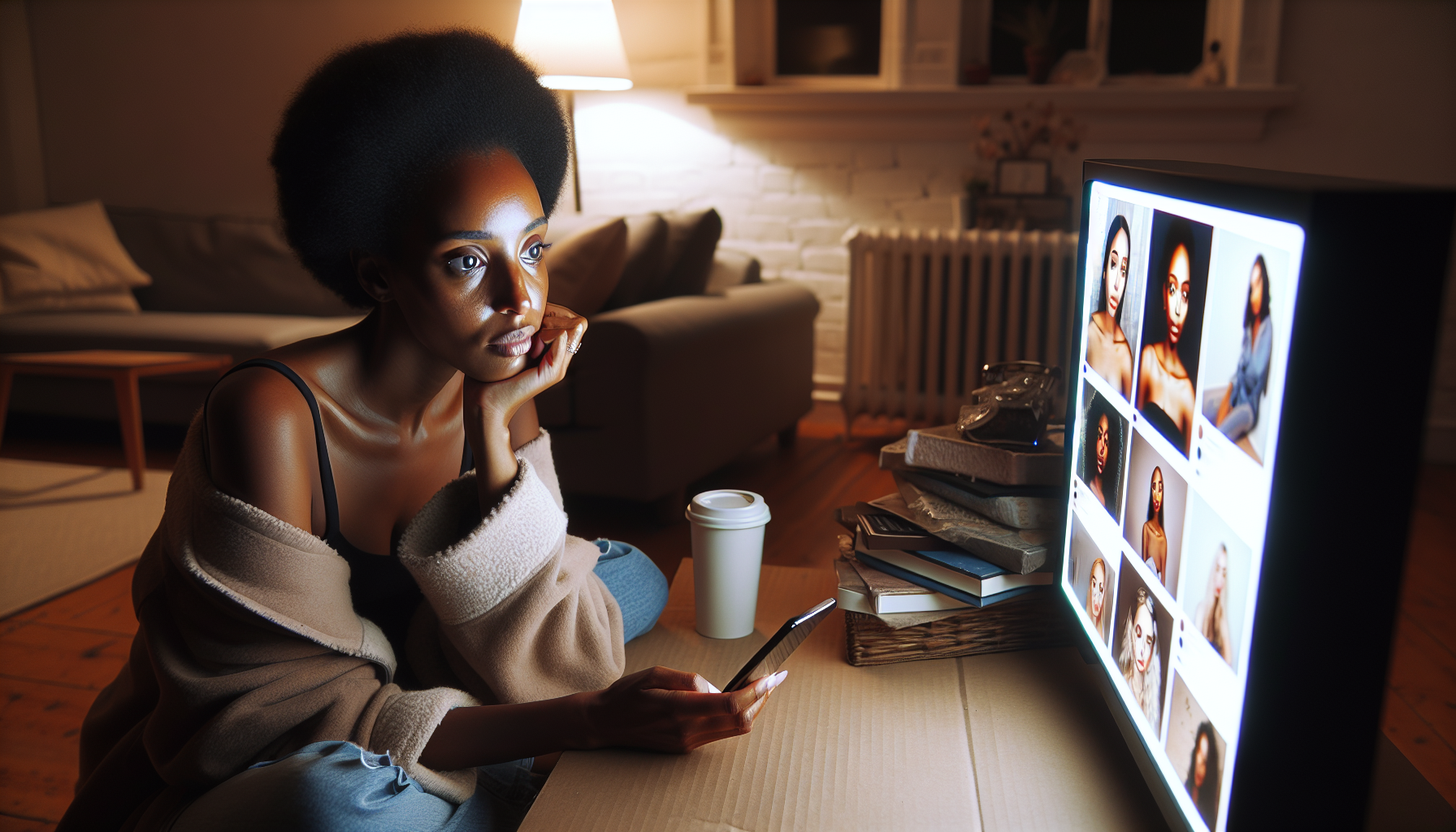
Despite the concerning effects of social media on self-image and mental health, strategies exist to steer clear of the social comparison trap. Here are some strategies to consider:
- Acknowledge that social media content is often a highly curated and unrealistic representation of life. This can help deter harmful social comparisons.
- Be aware of patterns in social media consumption that trigger feelings of inadequacy. Recognize when you start comparing yourself to others and take steps to manage those negative effects.
- Implement structured screen time limitations. Set boundaries for how much time you spend on social media each day.
- Use app wellbeing settings. Many social media platforms now offer features that allow you to control your social media usage and limit its impact on your self-image.
By implementing these strategies, you can reduce the negative effects of social comparison, such as lower self-esteem, and maintain a healthier self-image.
Additionally, curating a social media feed by selectively following accounts that inspire and support can lead to a healthier online environment and reduce negative self-comparison. The subsequent subsections will delve into these strategies in more detail, offering practical tips on recognizing the curated nature of social media and emphasizing personal growth and self-improvement.
Recognizing the curated nature of social media
Online portrayals on social media are commonly curated to highlight the most positive and extraordinary moments rather than depicting the mundane aspects of daily life. This carefully selected content creates unattainable ideals that put pressure on individuals, particularly young people, leading to difficulties in maintaining self-esteem.
Recognizing that social media posts only represent a snippet of someone’s life and not the complete reality helps foster a more accurate self-assessment and realistic expectations. The use of filters and selective sharing on social media platforms amplifies unrealistic comparisons by presenting users at their best, often omitting the normalcy and challenges of real life. Understanding this can help individuals navigate the curated nature of social media and mitigate its impact on self-image.
Focusing on personal growth and self-improvement
While recognizing the curated nature of social media is crucial, it is equally important to focus on personal growth and self-improvement to manage the negative effects of social comparison. Engaging in regular discussions about online activities can help individuals build self-confidence and foster a supportive online community. Setting realistic goals is a key factor in supporting a positive self-image.
Appreciating daily accomplishments can play a significant role in an individual’s personal growth and self-improvement. Combining a supportive community and effective goal-setting can lead to a healthier relationship with social media and a heightened focus on personal growth. This approach encourages individuals to set their own standards of success rather than comparing their lives with the curated lives of others.
Building a Positive Online Environment
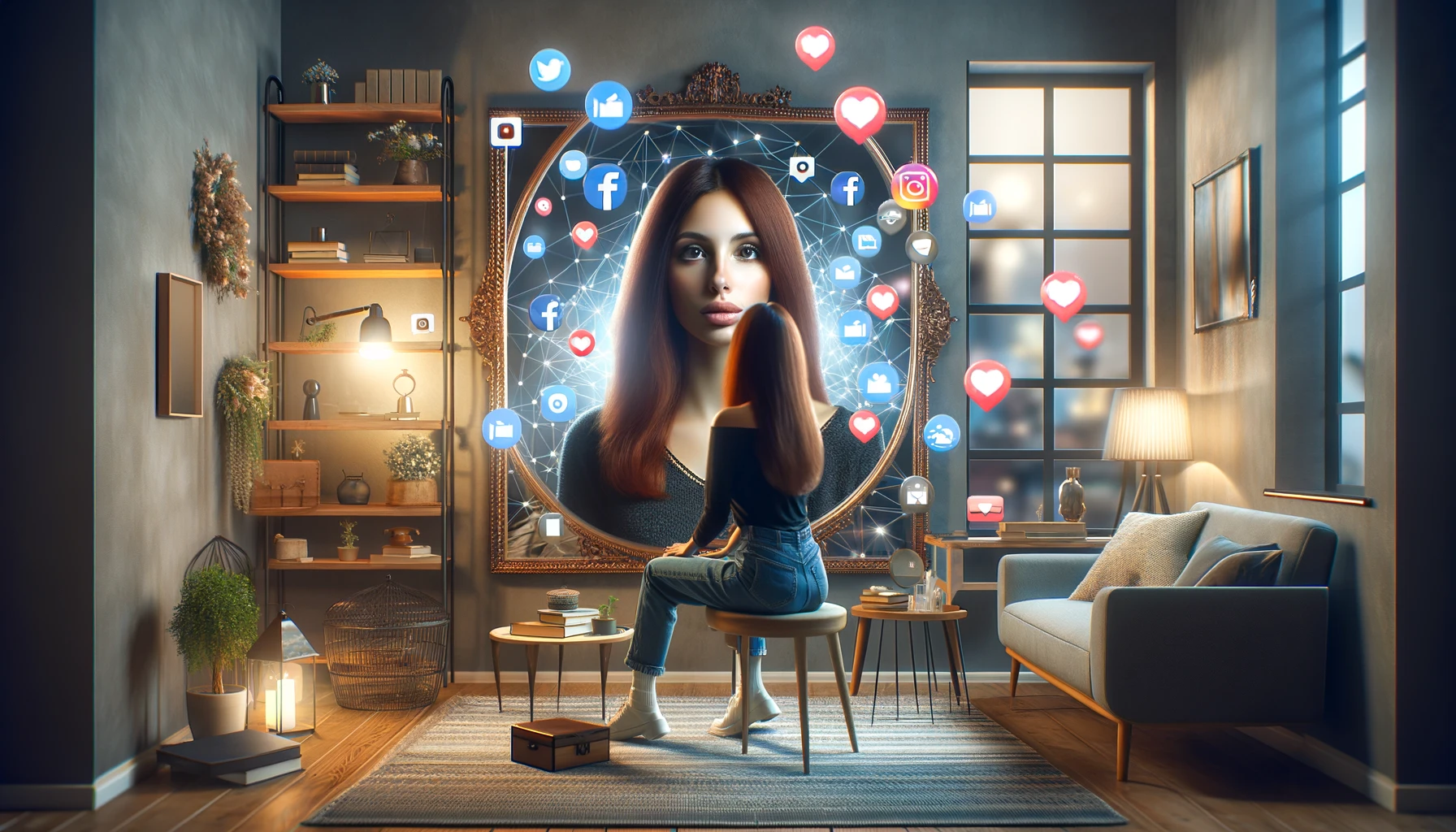
Although the aforementioned strategies can lessen the detrimental effects of social media on self-image, proactive efforts to cultivate a positive online environment are crucial. Here are some ways to do that:
- Engage in positive self-talk and affirmations on social media to significantly enhance one’s self-image.
- Foster a more supportive online environment by using social media for genuine interaction and nurturing relationships.
- Avoid using social media as a basis for comparison.
Learning from mistakes made online and using them as learning opportunities can build digital resilience. Encouraging critical thinking about online content helps differentiate between real and misleading information. The subsequent subsections will offer practical advice on curating social media feeds and participating in supportive communities.
Curating your social media feeds
Social media feeds often consist of both original and strategically shared curated content from other creators, which can contribute to a skewed perception of reality that emphasizes a highlight reel over daily normalcy. Content curation on social media is executed with strategic intent, aiming to provide value and diverse perspectives, thereby influencing viewers’ self-image through what they predominantly see.
To create a more supportive and positive social media environment, it is recommended to:
- Mute or block accounts that cause distress
- Use settings to block unwanted content
- Unfollow or mute accounts that promote negative self-perceptions
- Prioritize content related to personal interests, hobbies, and inspiration
By following these steps, users can cultivate a more positive and less emotionally charged social media experience.
Engaging in supportive communities
Participating in supportive communities on social media can lead to feelings of value and acceptance, as individuals connect with like-minded people. Social media platforms offer individuals the opportunity to develop relationships and stay connected, even with those who are geographically distant. By using a social media platform effectively, one can enhance their online experience and foster meaningful connections.
Users can express empathy and kindness towards others facing personal challenges by offering supportive messages and comments. Social media enables individuals to:
- Raise awareness about causes they believe in
- Find and connect with others who share similar interests
- Initiate important discussions on various topics within specific hobby or industry groups
It allows for better communication and connection among people.
Offline Strategies for Boosting Self-Image

While this post mainly focuses on the digital sphere, it’s important to remember that boosting self-image isn’t solely reliant on online strategies. Offline strategies play an equally significant role. Engaging in enjoyable activities such as hobbies or sports is linked to lower levels of stress and improved psychological functioning, which are essential for fostering a positive self-image.
Cultivating good friendships contributes to higher levels of happiness and self-worth while also mitigating stress and the risk of depression, all of which are beneficial to one’s self-image.
Practicing self-care
Regular self-care practices are essential to manage stress, improve emotional health, and maintain a positive self-image, paving the way for better mental well-being. Engaging in physical activities, such as a 30-minute walk daily, has been shown to significantly enhance mood and promote better general health.
Eating a balanced diet and ensuring adequate hydration can improve focus and provide sustained energy throughout the day. Getting sufficient sleep and maintaining a consistent sleep schedule while reducing nighttime blue light exposure from devices are key for mental health; establishing a digital detox before bed can aid in achieving better sleep quality. Consulting a mental health professional can also provide guidance on maintaining mental well-being.
Practicing relaxation techniques, including meditation, progressive muscle relaxation, or focused breathing exercises, can be instrumental in promoting mental well-being.
Cultivating real-life connections
Investing in real-life relationships can offer a more balanced perspective, as offline interactions provide more context and detail compared to the limited and curated nature of online profiles. Research shows that social media use among Gen Z often lacks the richness and depth of in-person interactions, potentially worsening feelings of loneliness and social isolation.
Building and nurturing real-life friendships can act as a buffer against the detrimental effects of social comparison on social media. These relationships can provide social support, help combat loneliness, and foster a sense of belonging that can help to build confidence and improve self-esteem.
Summary
In the digital age, social media has emerged as a powerful force shaping our self-image and self-esteem. While it provides a platform for connection and expression, it also presents challenges in the form of social comparison, unrealistic beauty standards, and the pressure to present a curated version of ourselves. Navigating these challenges requires a multi-faceted approach, including recognizing the curated nature of social media, focusing on personal growth, curating our social media feeds, and engaging in supportive communities.
Moreover, offline strategies such as practicing self-care and cultivating real-life connections are equally important. By balancing our online lives with our personal lives and focusing on our unique journey instead of comparing ourselves with others, we can foster a positive self-image and navigate the digital world with confidence and resilience. Remember, we are more than the likes, shares, or comments we receive on social media. Our self-worth is not defined by our online lives but by who we truly are.
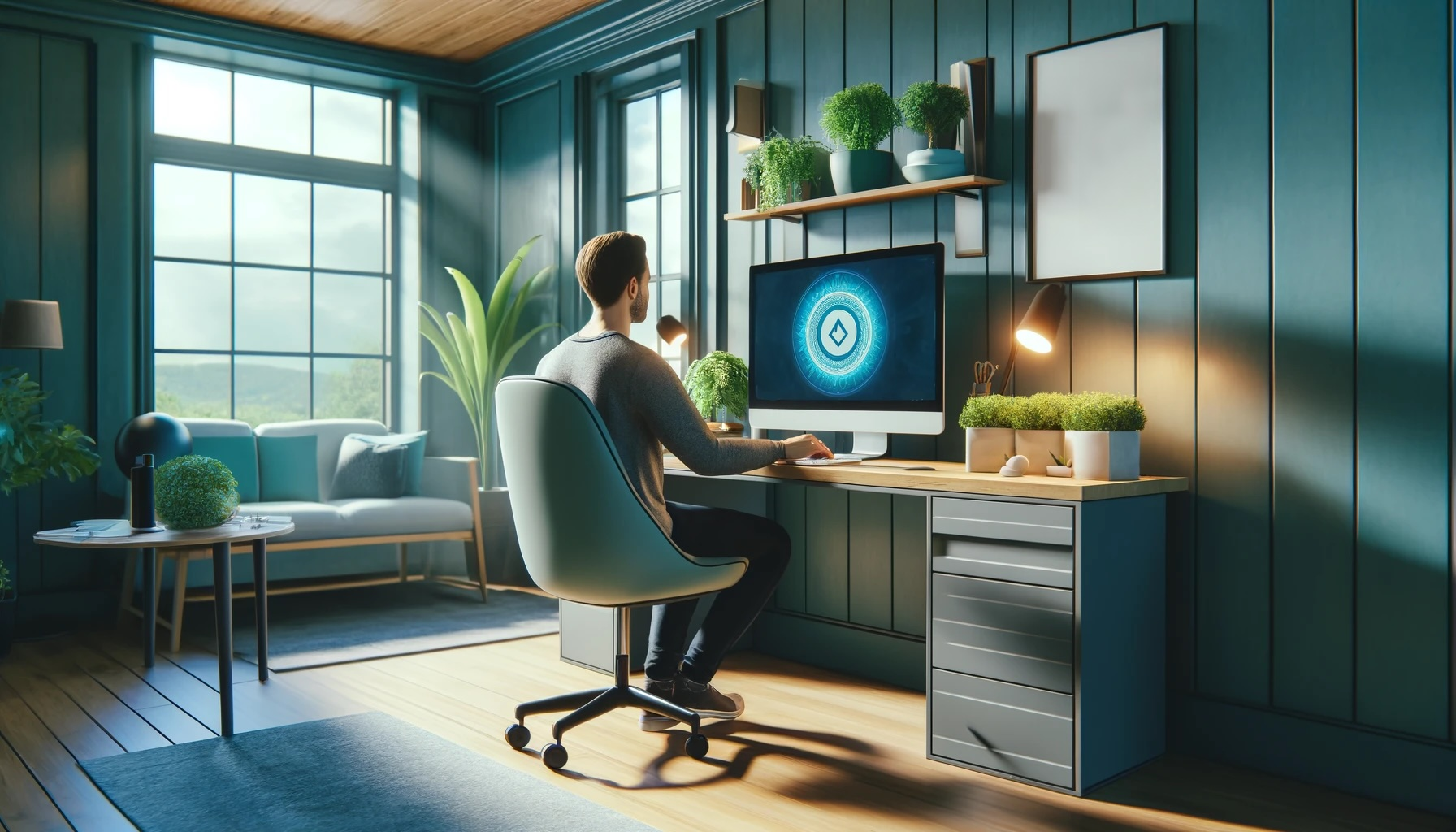
Frequently Asked Questions
How does social media affect self reflection?
Social media can serve as a platform for individuals to reflect on their beliefs and experiences, leading to deeper self-understanding and insight. This can potentially impact self-growth positively.
How does social media affect self-image?
Social media can have a significant impact on self-image, as it promotes unrealistic beauty standards and constant social comparison, often leading to decreased self-esteem.
How can I manage the negative effects of social comparison on social media?
To manage the negative effects of social comparison on social media, it’s important to recognize that social media content is often curated and unrealistic. Focusing on personal growth, setting realistic goals, and appreciating daily accomplishments can also help.
What are some strategies for building a positive online environment?
To build a positive online environment, curate your social media feeds by following inspiring and supportive accounts, engage in positive self-talk, practice critical thinking about online content. This will help foster a more uplifting online experience for yourself and others.
How can offline strategies boost self-image?
Engaging in offline activities and building real-life relationships can boost self-image by providing a healthy balance to our online lives and nurturing a positive sense of self-worth.
